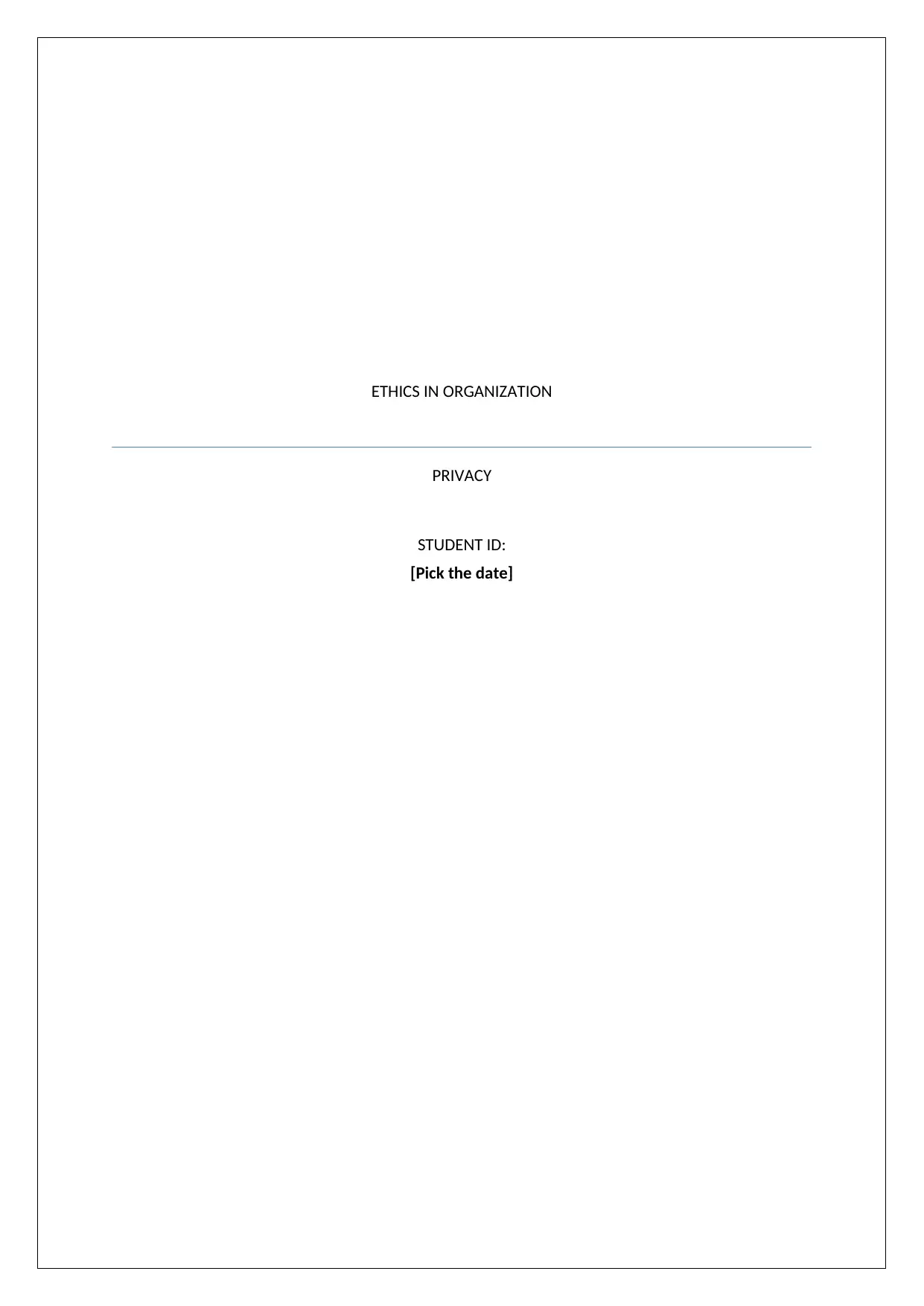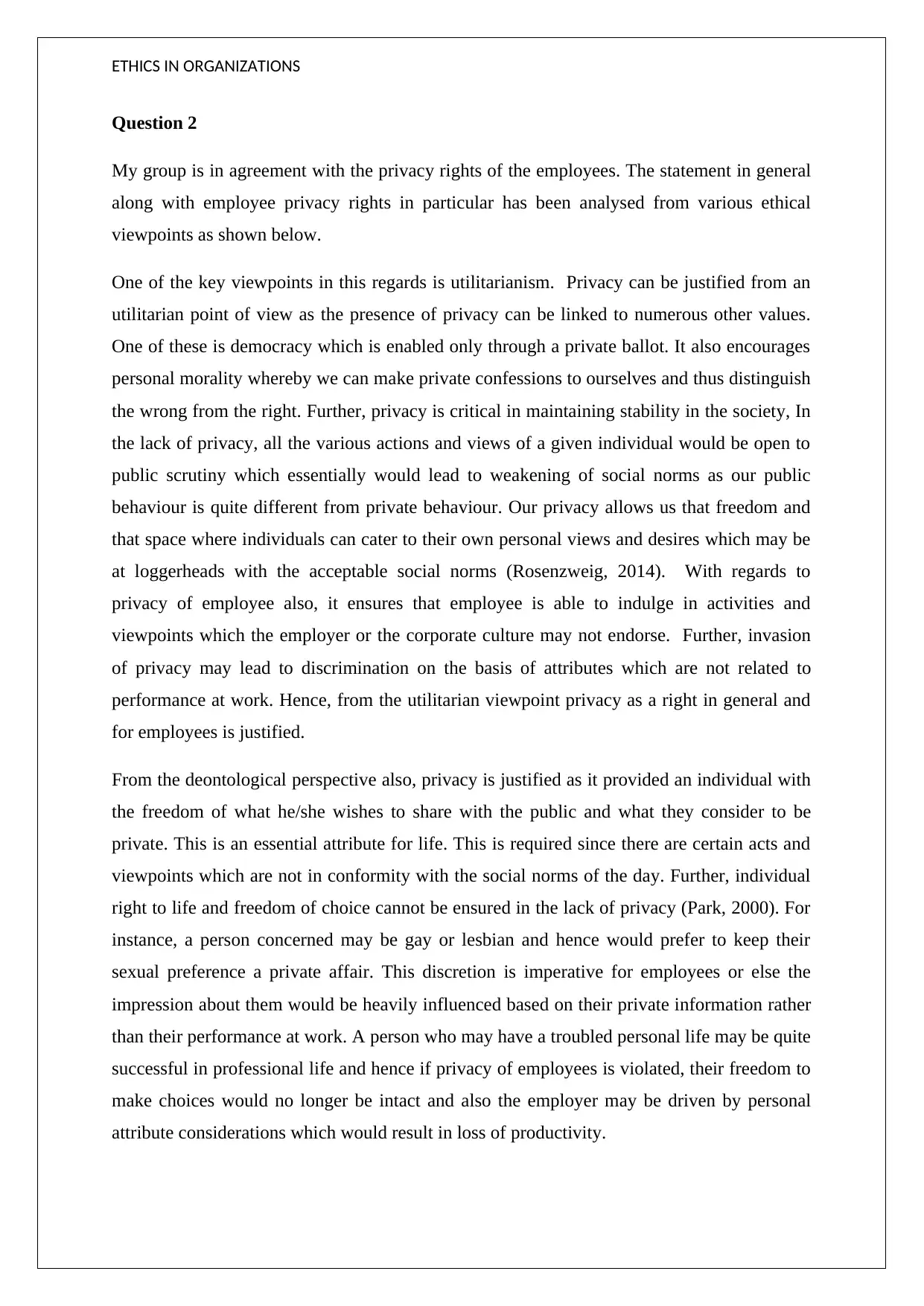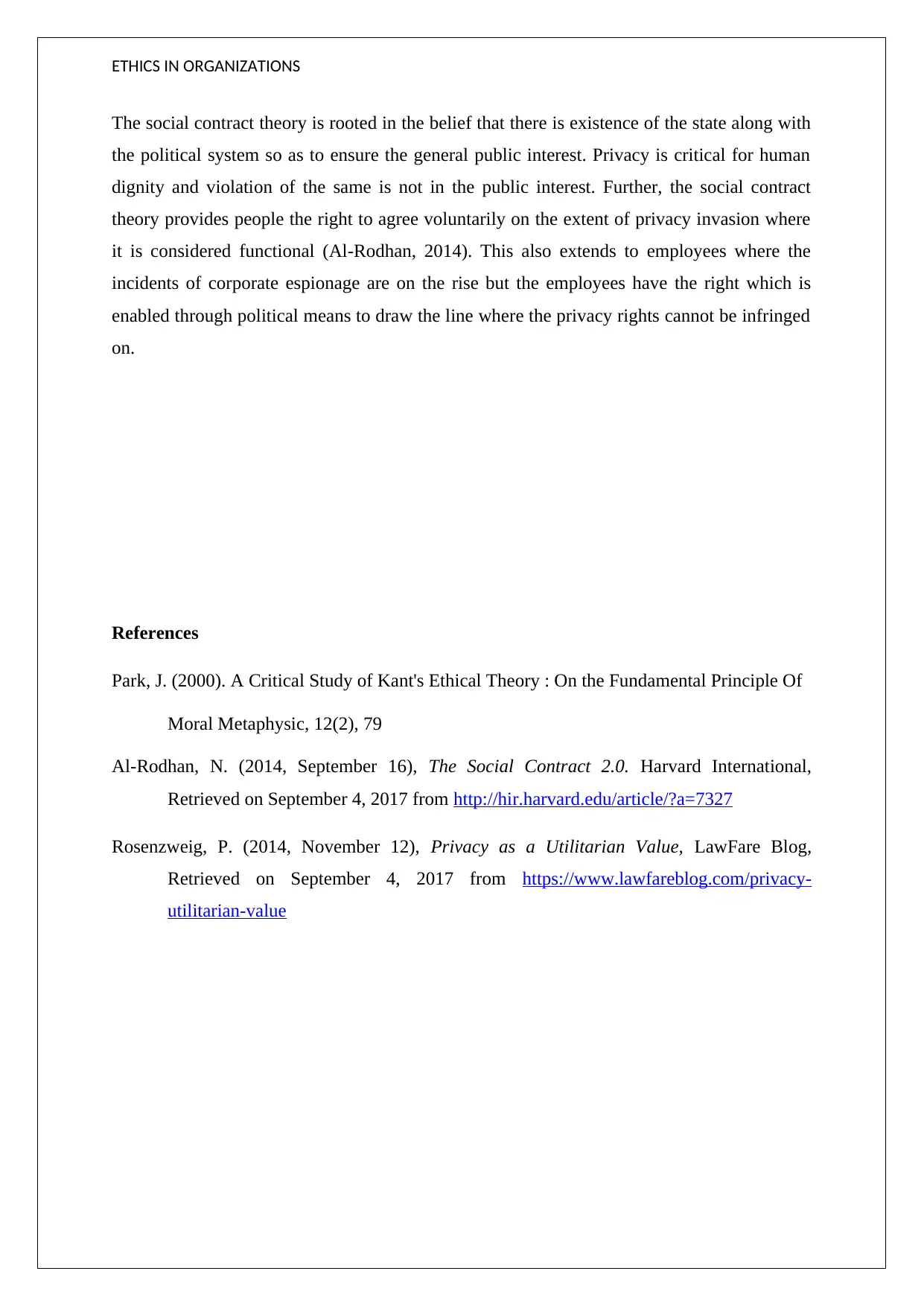Ethics in Organizations: Employee Privacy Rights Analysis - Ethics
VerifiedAdded on 2019/11/26
|3
|690
|333
Homework Assignment
AI Summary
This assignment delves into the ethical considerations surrounding employee privacy within organizations. The student's analysis aligns with the belief that privacy rights are essential for employees. The student explores privacy from several ethical viewpoints, including utilitarianism, which links privacy to democracy and personal morality, and argues for its role in societal stability and employee autonomy. The deontological perspective is also considered, emphasizing the importance of privacy for individual freedom and the right to make choices. Furthermore, the social contract theory is invoked to highlight how privacy is crucial for human dignity and the public interest, allowing employees to define the boundaries of privacy invasion. The analysis references relevant academic sources to support the arguments, providing a comprehensive understanding of employee privacy rights in the workplace.
1 out of 3








![[object Object]](/_next/static/media/star-bottom.7253800d.svg)